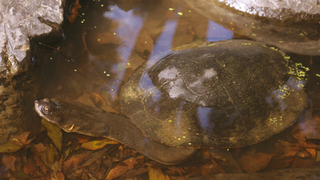Life's Little Mysteries: Science questions, answered

The world can be a pretty mysterious place and we at Live Science love to ask and answer scientific questions about mysteries big and small: about ancient civilizations, our planet and our solar system, the plants and animals that live alongside us, our bodies and how they work, and the technologies that we use every day.
Join us on this exciting voyage of discovery and downright weirdness as we solve … Life's Little Mysteries.
Sign up for our weekly Life's Little Mysteries newsletter to get the latest mysteries before they appear online.
Latest about Life's Little Mysteries

Is the sun really a dwarf star?
By Charles Q. Choi published
Our sun is huge, at least compared to Earth and the other planets. So is it really a dwarf?

Why is Venus so bright?
By Deepa Jain published
The "morning star" is bright because of several factors, including having an atmosphere filled with sulfuric acid.

What's the fastest a human can grow?
By Ashley Hamer published
Humans grow tall in spurts, but what's our fastest period of growth?

Can a turtle tuck its head all the way inside its shell?
By Emma Bryce published
Turtle shells evolved over the course of 300 million years, but self-defense wasn't the initial driver, researchers think.

How are 'traumatic tattoos' made, and do you have one?
By Abby Wilson published
Traumatic tattoos aren't like regular ones, and they often involve pencils.

What was the loudest sound ever recorded?
By Clarissa Brincat published
Determining the "loudest recorded sound" depends on how you define sound and on which measurements you choose to include.

What if Antony and Cleopatra had defeated Octavian?
By Owen Jarus published
How would history have unfolded if Antony and Cleopatra had defeated Octavian? Would they have ruled the Roman Empire?

What's the difference between a newt and a salamander?
By Alice Sun published
Salamanders and newts are both long-tailed amphibians, but what's the difference between them?
Get the world’s most fascinating discoveries delivered straight to your inbox.




